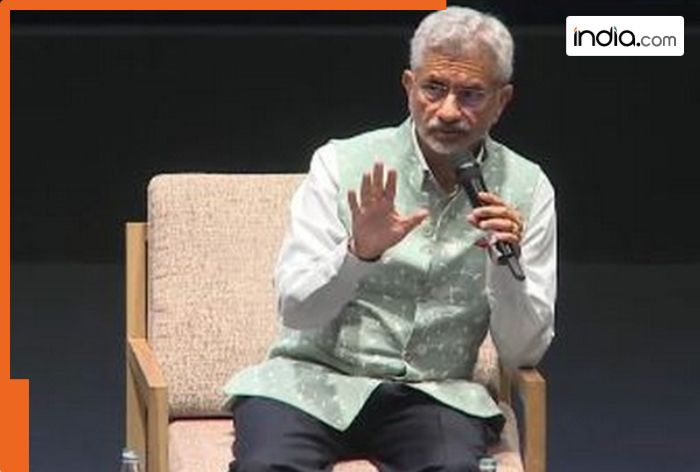Jaishankar said that since 2020, “The situation in the border has been very disturbed and that’s had a very negative impact on the overall relationship”.
Pune: External Affairs Minister S. Jaishankar highlighted the pivotal roles of both military and diplomatic efforts in reaching the recent border patrolling agreement between India and China along the Line of Actual Control (LAC). Speaking in Pune, he stressed that while this agreement represents progress, establishing trust and mutual willingness between the two nations will be a gradual process. Jaishankar’s remarks underscore the complex dynamics at play in managing India-China relations, where both military readiness and diplomatic dialogue are crucial in ensuring stability along the border.
During an interactive session with students at FLAME University in Pune, External Affairs Minister S. Jaishankar addressed the ongoing challenges in India-China relations. Jaishankar said that since 2020, “The situation in the border has been very disturbed and that’s had a very negative impact on the overall relationship”. “Since September 2020, We have been negotiating with the Chinese on how to find a solution,” he added.
Foreign Minister S. Jaishankar outlined three primary issues in the recent India-China border patrolling agreement along the Line of Actual Control (LAC). The most urgent issue is “disengagement,” as the proximity of Indian and Chinese troops presents risks of potential incidents. The second priority is “de-escalation,” aiming to reduce military tensions in the area. The third, longer-term objective involves establishing a structured approach to managing the border and negotiating a boundary settlement.
Jaishankar stated that as of now the governments are engaging in the first part which is disengagement, understanding of how the troops return to their bases and the blocking of patrolling.
“And that is what we have been trying to negotiate now for the last two years”, Jaishankar remarked, news agency ANI reported. “Because after four years of a very disturbed border, where peace and tranquillity have really been shattered, it will take naturally time to sort of rebuild a degree of trust and sort of a willingness to work with each other.”, he said. Discussing the factors which allowed the two countries to reach the present-day circumstances, Jaishankar pointed to a “very determined effort” and the significant improvement in border infrastructure.
An interaction with students of @FLAMEUniversity in Pune.
— Dr. S. Jaishankar (@DrSJaishankar) October 26, 2024
“If today we have reached where we have, there are two reasons for it. One, a very determined effort on our part to stand our ground and make our point,” Jaishankar wasv quoted as saying by news agency ANI. He said this was only possible “because the military was there in very, very unimaginable conditions to defend the country.” “The military did its part and diplomacy did its part”, the EAM added.
Highlighting another important aspect, Jaishankar said, “In the last decade we have improved our infrastructure. So when you put in more resources, almost five times annually the resources than they used to be a decade ago, that is showing results, and enables the military, to be effectively deployed. I think the combination of all of this has led to where it is.”
(With ANI Inputs)

